
210 Goodbyes: Lessons From Ending Grantee Relationships
This resource from the S.D. Bechtel Jr. Foundation provides guidance and practical steps for how to navigate the ending of a grantmaking relationship in a way that maintains your grantee partner’s needs in mind.
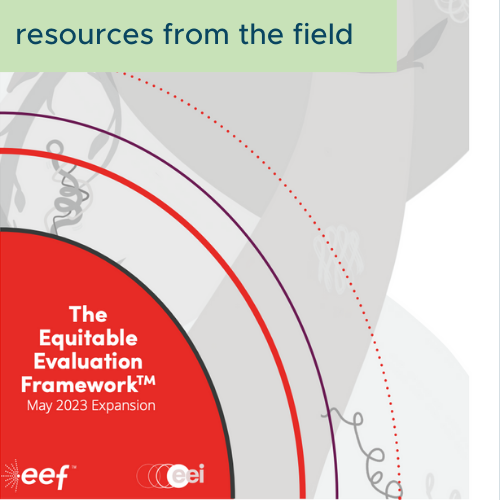
The Equitable Evaluation Framework (EEF)
This resource from the Equitable Evaluation Framework™ (EEF) provides guidance on how to align your purpose, practices, processes, and policies with your foundation’s stated values and intentions.
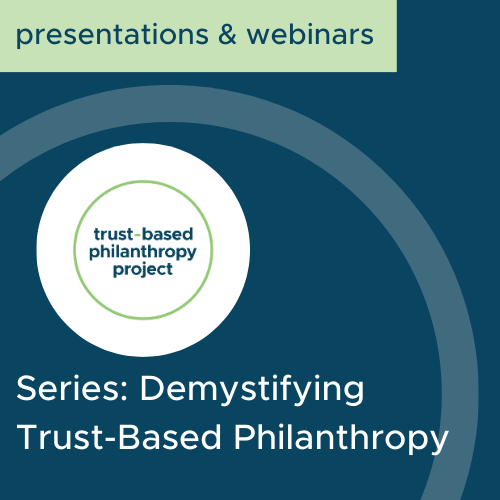
6-Part Series: Demystifying Trust-Based Philanthropy
In this six-part webinar series, the Trust-Based Philanthropy Project and featured speakers address common questions, clarify misconceptions, and explore ways to overcome obstacles in implementing trust-based philanthropy.

IVAR: Unrestricted Funding in Practice Series
These resources from UK-based IVAR provide case examples from funders who have implemented unrestricted funding practices in their organizations. Each case example provides an exploration of the impact shifting to unrestricted funding has made in their organizations, input from their grantee partners, and advice to other funders.

The Intersection of Trust-Based Philanthropy & Racial Equity
This one-pager provides a simple venn diagram of the similarities and differences between trust-based philanthropy and racial equity.
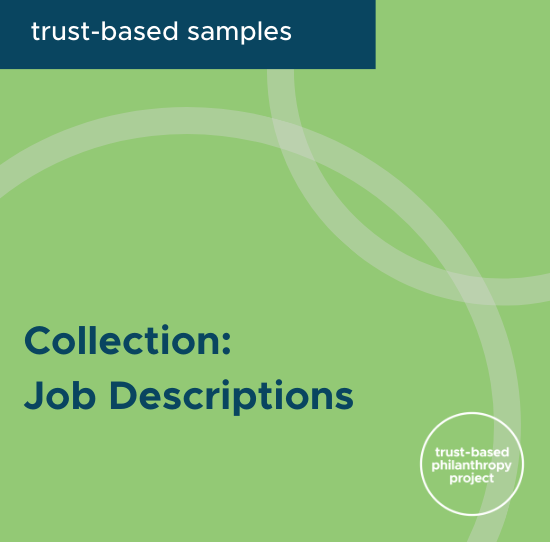
Sample Collection: Job Descriptions
These sample variety of job descriptions offer guidance for funders seeking to incorporate trust-based values in their staff roles.

Doing the Homework
This guide provides insight on what it really means to do the homework and outlines action steps funders can take to meaningfully incorporate this practice in their organizational structure, culture, and relationships.

Sample Collection: Welcome Letters for New Grantee Partners
This collection of welcome letters from Thousand Currents and the Charlize Theron Africa Outreach Project (CTAOP) demonstrate how funders can lead with trust and center relationships when embarking on new grantee partner relationships.

Series: Trust-Based Philanthropy for Community Foundations
This two-part series, a partnership between the Trust-Based Philanthropy Project, Philanthropy Northwest, and the Iowa Council of Foundations, is designed for community foundations that are actively working to embrace trust-based philanthropy. This series explores how trust-based philanthropy plays out in the unique context of community foundations working at the intersection of grantmaking, fund development, donor relations, and community leadership

Support Beyond the Check
This one-pager outlines concrete steps funders can take today in their organization’s culture, structure, and leadership to support their grant partners beyond the check
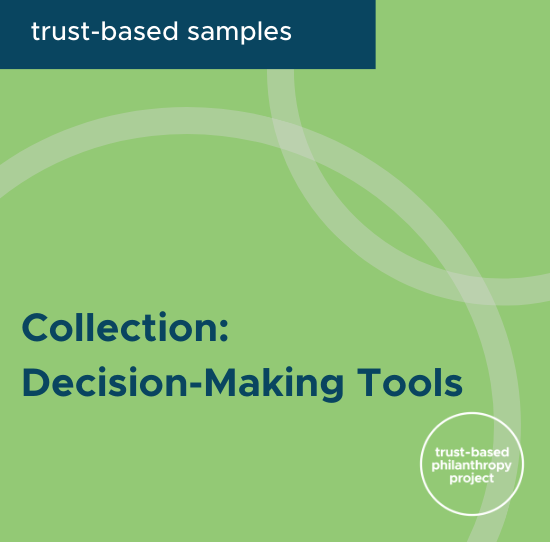
Sample Collection: Decision-Making Tools
Check out these trust-based decision-making tools designed to support the grantmaking decision process

Trustee Perspectives on Trust-Based Philanthropy
Since 2010, bi3, the philanthropic initiative of Bethesda, Inc., has invested $50 million to transform and enhance health in Greater Cincinnati. In the following videos, Bethesda Inc. Trustees Dr. Robert Collins, Ellen Katz, and Jill Miller, share about the impact of trust-based philanthropy and the role boards play in supporting their organizations on their trust-based journey.

Sample Collection: Support Beyond the Check
These examples demonstrate structured ways that funders can provide support beyond the check.
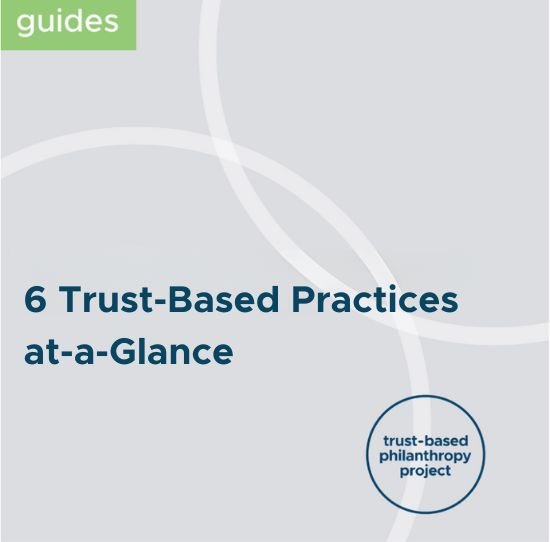
6 Trust-Based Practices at-a-Glance
This guide provides a 2-page overview of the trust-based philanthropy approach, including the six practices of trust-based grantmaking.

Trust-Based Philanthropy vs. Conventional Grantmaking
While two institutions may share the same mission, how they carry it out can vary widely. Trust-based philanthropy flips the script on conventional philanthropy by promoting a culture of sharing power, centering relationships, and fostering mutual accountability. While the two approaches are not always diametrically opposed, this overview highlights some key areas of distinction wherein trust-based philanthropy reimagines conventional norms.
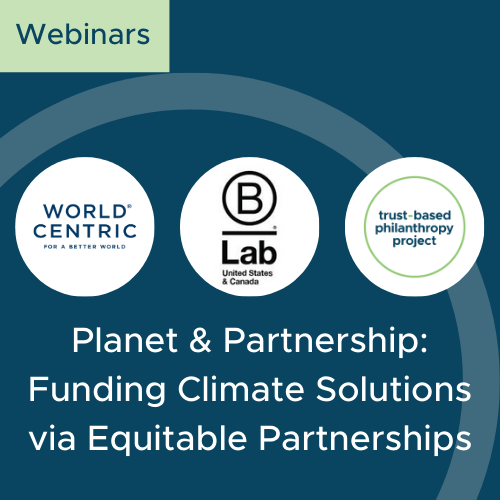
Planet & Partnership: Funding Climate Solutions via Equitable Partnerships
For corporate philanthropy to be more equitable and impactful, we need to examine and reimagine the way we do our work to better center the experiences of leaders who are on the frontlines of the issues we seek to address. As businesses and funders, we can accelerate climate solutions that advance equity while at the same time shifting power dynamics within traditional philanthropy, and building authentic and mutually accountable relationships with frontline and local communities. How do we build these relationships?
In this webinar, the team at The Trust Based Philanthropy Project will share a framework for more equitable and effective grantmaking partnerships as we hear from community partners and B Corp funders who are operationalizing trust-based practices.
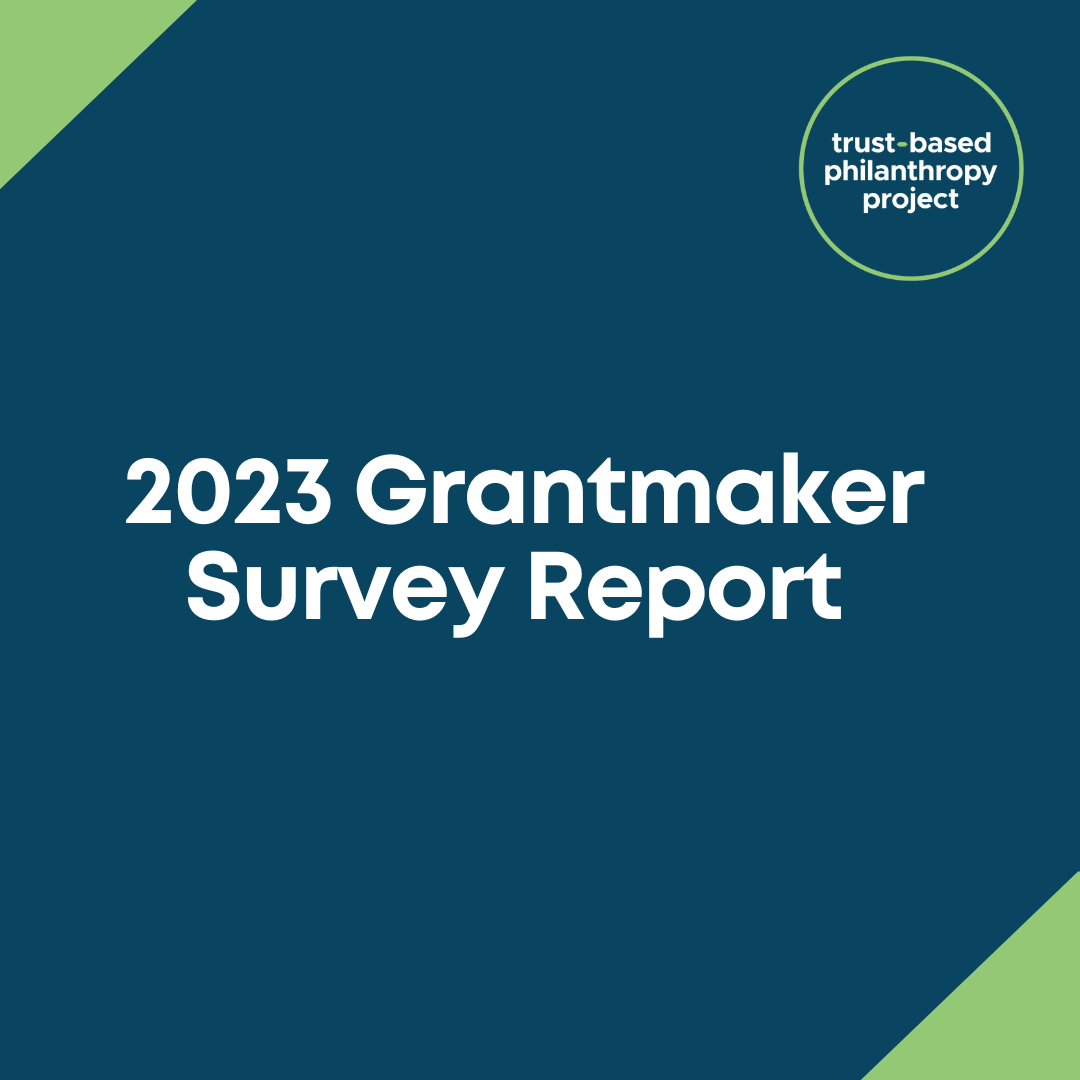
Insights From Our 2023 Grantmaker Survey
An analysis of top motivations for pursuing trust-based philanthropy, organizational shifts to trust-based practices and operations, and contributing factors for organizational change. Based on 2023 survey data from 396 grantmakers on the trust-based philanthropy journey.

Enabling Trust-Based Practices: 4 Tips for Grants Management Systems
This guide provides specific suggestions for a key element of trust-based structures: The grants management system. It is designed to provide a set of concrete features, integrations, and accessibility standards that you can use to advance your trust-based operations.
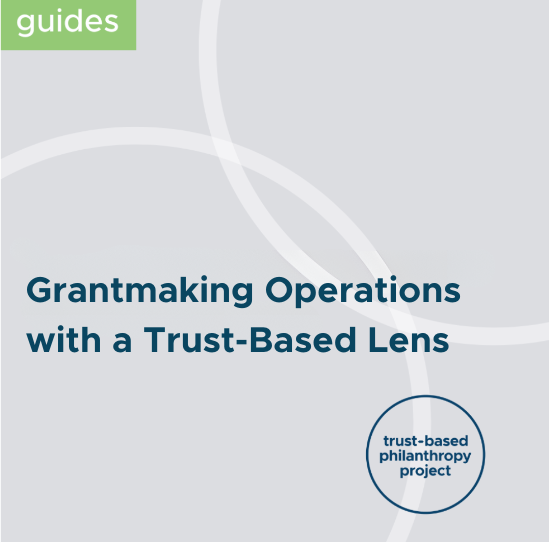
Grantmaking Operations with a Trust-Based Lens
This guide draws on the experiences of funders who have applied a trust-based lens to their grantmaking operations to identify the key ways that grantmaking practitioners can operationalize their grantmaking processes in ways that center the needs of their grant partners.
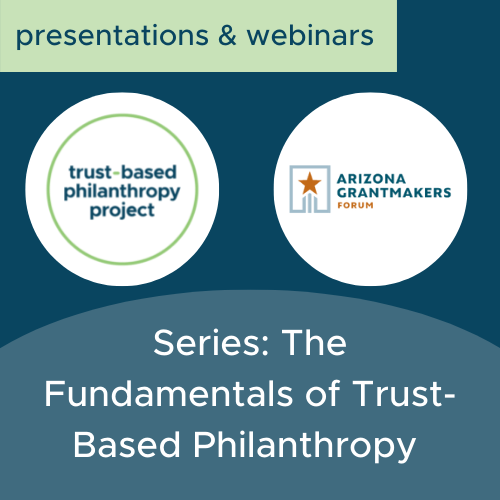
Series: The Fundamentals of Trust-Based Philanthropy
This two-part series dives into the six practices of trust-based philanthropy and the culture, structures, and leadership necessary for funders to bridge the values-to-practice gap and embody a trust-based approach.
